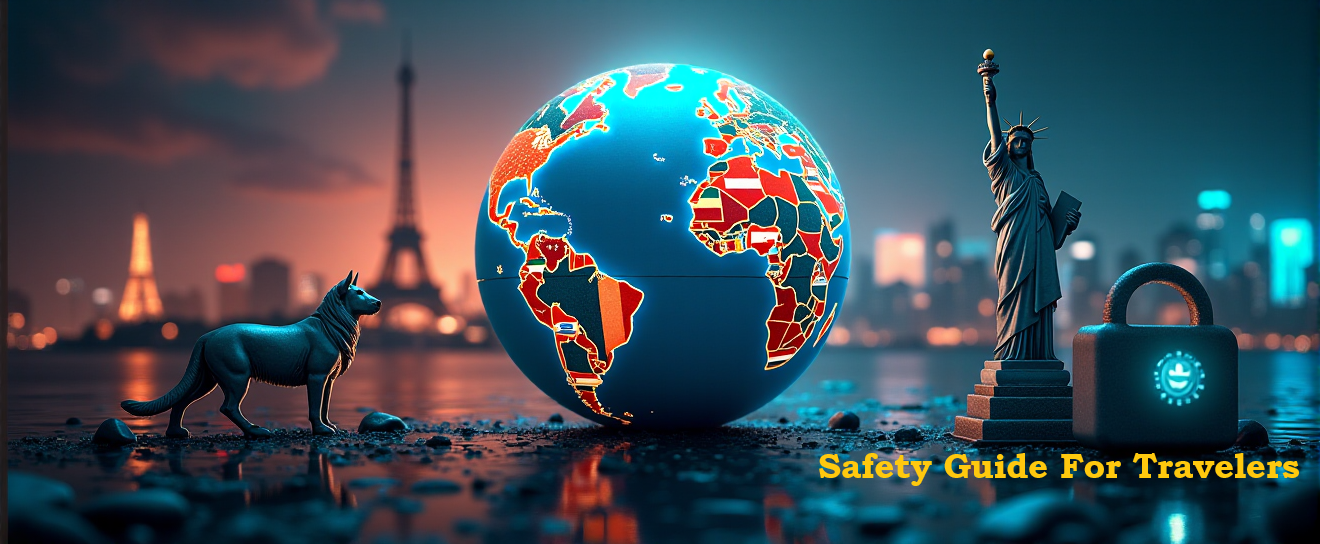Traveling to Japan is an exciting venture, offering a unique blend of ancient traditions and modern marvels. From the bustling streets of Tokyo to the serene temples of Kyoto, Japan is a country that captivates visitors with its rich culture, delicious cuisine, and stunning landscapes. However, as with any travel destination, it is essential to prioritize personal and financial safety while exploring this beautiful nation. Understanding potential risks and knowing how to navigate them can significantly enhance your travel experience.
Japan is often regarded as one of the safest countries in the world for tourists. The crime rate is relatively low, and violent crime is rare. However, this does not mean that travelers are entirely free from risks. Petty crimes, scams, and tourist traps can occur, particularly in popular tourist areas. Being informed about these issues can help you avoid pitfalls and ensure a smooth journey.
In this article, we will delve into various safety aspects relevant to travelers in Japan, including common scams, tourist traps, specific safety tips for major cities like Tokyo and Kyoto, and emergency contact numbers. By being aware of these factors, you can enjoy all that Japan has to offer while minimizing potential risks.
Emergency Contact Numbers
Before diving into safety tips and concerns, it’s crucial to know the emergency contact numbers in Japan:
- Police: 110
- Ambulance and Fire: 119
- Tourist Information Center: 03-5777-8600 (Tokyo)
- English-speaking Police Assistance: 03-5774-0992
Common Safety Concerns
1. Petty Crime
While violent crime is uncommon in Japan, petty crimes such as pickpocketing can occur in crowded areas like train stations or tourist attractions. Always keep your belongings secure and be mindful of your surroundings.
2. Scams Targeting Tourists
Despite Japan’s reputation for safety, there are several scams that specifically target tourists:
- Rip-off Bars: In nightlife districts like Roppongi and Kabukicho in Tokyo, some bars lure tourists with promises of cheap drinks but then present exorbitant bills. Always check prices before ordering and consider paying in cash to avoid unexpected charges.
- Fake Monks: In areas around temples and shrines, individuals dressed as monks may approach you asking for donations or trying to sell trinkets. Genuine monks do not solicit money in this manner; politely decline their offers.
- Photography Scams: In busy areas like Shibuya or Harajuku, you may encounter individuals who ask to take your photo under the pretense of being talent scouts. These scammers may demand payment afterward. If approached, politely refuse.
3. Tourist Traps
Certain locations are known for overcharging tourists or providing subpar services:
- Overpriced Restaurants: Some eateries near major attractions may inflate prices significantly. Research dining options ahead of time or seek recommendations from locals.
- Rickshaw Rides: While rickshaws can be a fun way to explore cities like Kyoto, some drivers may charge excessively without disclosing prices upfront. Always inquire about the fare before starting your ride.
Location-Specific Safety Tips
Tokyo
Tokyo is a vibrant metropolis with much to explore but also comes with its own set of safety considerations:
- Shinjuku: Known for its nightlife and entertainment options, Shinjuku can be a hotspot for scams. Be wary of individuals inviting you into bars with promises of cheap drinks or special offers.
- Akihabara: This area is famous for electronics and anime culture but can also attract scammers selling counterfeit goods. Always buy from reputable stores.
Kyoto
Kyoto is renowned for its historical sites and beautiful temples:
- Temples and Shrines: While visiting places like Kinkaku-ji (Golden Pavilion), be cautious of individuals posing as monks asking for donations or selling items under false pretenses.
- Public Transportation: When using buses or trains, keep an eye on your belongings as crowded conditions can attract pickpockets.
General Safety Tips
- Stay Aware of Your Surroundings: Always be vigilant in crowded places and avoid distractions that could make you an easy target for thieves.
- Use Reputable Transportation Services: When traveling between cities or within urban areas, opt for well-known transportation services like Japan Railways (JR) or licensed taxis.
- Avoid Sharing Personal Information: Be cautious when meeting new people; do not share personal details or financial information with strangers.
- Keep Copies of Important Documents: Make photocopies of your passport, travel insurance details, and other essential documents in case they are lost or stolen.
- Learn Basic Japanese Phrases: Knowing a few key phrases can help you navigate situations more easily and communicate with locals if needed.
- Trust Your Instincts: If something feels off—whether it’s a person’s behavior or an establishment—trust your gut feeling and remove yourself from the situation.
Traveling to Japan can be an enriching experience filled with unforgettable moments. By staying informed about potential safety concerns and scams while adhering to practical tips, you can mitigate risks and fully immerse yourself in the beauty of this incredible country. Remember that while Japan is generally safe for tourists, being cautious and prepared will enhance your overall experience.
Enjoy your travels in Japan—explore its rich history, savor its culinary delights, and engage with its warm-hearted people—all while keeping safety at the forefront of your adventure!


![Poland [Country Info]](https://globleo.com/wp-content/uploads/2024/11/flag_of_the_country_Poland_PL.png)
![Qatar [Country Info]](https://globleo.com/wp-content/uploads/2024/11/flag_of_the_country_Qatar_QA.png)